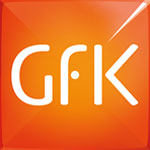Tokyo maintains brand image, despite earthquake and tsunami

The City Brands Index (CBI) measures the world's perception of 50 cities from both developed and developing countries. Among the top ten cities, Paris ranks as the top overall city "brand", followed by London, Sydney, New York and Los Angeles. Tokyo ranks 10th among 50 cities measured.
The 2011 Anholt-GfK Roper City Brands Index is based on a survey conducted in 10 major developed and developing countries around the globe. The index is developed by averaging city scores across six categories: Presence, Place, Pre-requisites, People, Pulse and Potential. Each category has two to three questions assessing a city's performance such as contribution to the world, cleanliness, climate, buildings and parks, accommodations, public amenities, personal encounters, interesting events, lifestyles, job and educational opportunities, and business climate.
"The stability of Tokyo's brand image comes as no surprise, since the city consistently ranks impressively on welcoming people, amenities, cultural richness, education and business climate," says Simon Anholt, CBI founder and an independent advisor to more than forty national governments around the world. "The reputations of countries and cities are never affected by acts of god, only by acts of men."
The top 10 cities from the 2011 global survey
| 2011 Anholt-GfK Roper City Brands Index | |
|---|---|
| Overall Brand Ranking | |
| 1 | Paris |
| 2 | London |
| 3 | Sydney |
| 4 | New York |
| 5 | Los Angeles |
| 6 | Rome |
| 7 | Washington D.C. |
| 8 | Melbourne |
| 9 | Vienna |
| 10 | Tokyo |
"A city's reputation can have a major impact on the city's ability to attract business and tourism," says Anholt. "While it is not a realistic goal for most cities in the world to rank in the top 10, it is vital that cities are able to provide a pleasant, prosperous, and sustainable life for their citizens, visitors, neighbours, and trading partners, and that this is widely recognised around the world."
While cities from the developed world generally perform very well overall and on almost all individual dimensions, cities from emerging markets have garnered relatively high rankings in some important areas.
"Cities from emerging markets have some of the most dynamic economies in the world. Their global contribution and future momentum are starting to get recognition in the world of public opinion," says Xiaoyan Zhao, Senior Vice President and Director of the CBI study at GfK. "But they still have long ways to go in building their overall offers, particularly in terms of clean environment, safe streets, and public amenities that keep pace with economic development."
Following are the top three ranked cities in each of the six categories, as well as two additional cities with noteworthy positions on the list:
Presence Brand Ranking
1. London
2. Paris
3. New York
9. Beijing
15. Dubai
People Brand Ranking
1. Sydney
2. Melbourne
3. London
29. Singapore
46. Mexico City
Place Brand Ranking
1. Sydney
2. Paris
3. Rome
38. Chicago
50. Mumbai
Pulse Brand Ranking
1. Paris
2. New York
3. London
16. Rio de Janeiro
45. Warsaw
Pre-requisites Brand Ranking
1. Sydney
2. Melbourne
3. Toronto
4 (tie). London/Washington D.C.
26. Prague
Potential Brand Ranking
1. London
2. New York
3. Los Angeles
23. Hong Kong
32. Dublin
Among the top 30 list, Tokyo, Singapore, Hong Kong, Prague and Dubai are the only cities from outside of North America, Western Europe, and Australia.
Cleanliness is a weak spot
"In terms of Tokyo's image, the one noticeable weak spot is Tokyo's cleanliness," says Xiaoyan Zhao, "Tokyo ranks in the bottom half of all measured nations on this question, yet Tokyo is still the only Asian city to make the overall top 10 list, because, among other things, it is viewed as one of the best contributors of culture, science and governance, and a city that retains world-class public amenities."
The strongest city brands - Paris, London, Sydney, New York, and Los Angeles - are highly regarded across regions, including in the developing world, although cultural and geographic proximities play a role as well. For example, Los Angeles (5th) garners higher rankings than New York from respondents in China and South Korea. And while Brussels (28th) only receives middling ratings in most countries, it is a top 11 city for German and French respondents.
Anholt-GfK Roper City Brands Index
The Anholt-GfK Roper City Brands Index measures the image of 50 cities with respect to Presence, Place, Pre-requisite, People, Pulse and Potential. For the 2011 study, a total of 5105 interviews were conducted in Australia, Brazil, China, France, Germany, India, Russia, South Korea, The United Kingdom, and the United States. Adults age 18 or over who are online are interviewed in each country. Using the most up-to-date online population parameters, the achieved sample in each country has been weighted to reflect key demographic characteristics including age, gender, and education of the 2011 online population in that country. Fieldwork was conducted by GfK Roper Public Affairs & Corporate Communications from 25 April to 16 May 2011.
Source: GfK

The GfK Association was established in 1934 as a non-profit organization for the promotion of market research. Its membership consists of approximately 600 companies and individuals. The purpose of the Association is to develop innovative research methods in close cooperation with academic institutions, to promote the training and further education of market researchers, to observe the structures and developments in society, the economy and politics that play a key role in private consumption, and to research their effects on consumers. Survey results are made available to the membership. The GfK Association is a shareholder in GfK SE.
Go to: http://www.gfk.com





